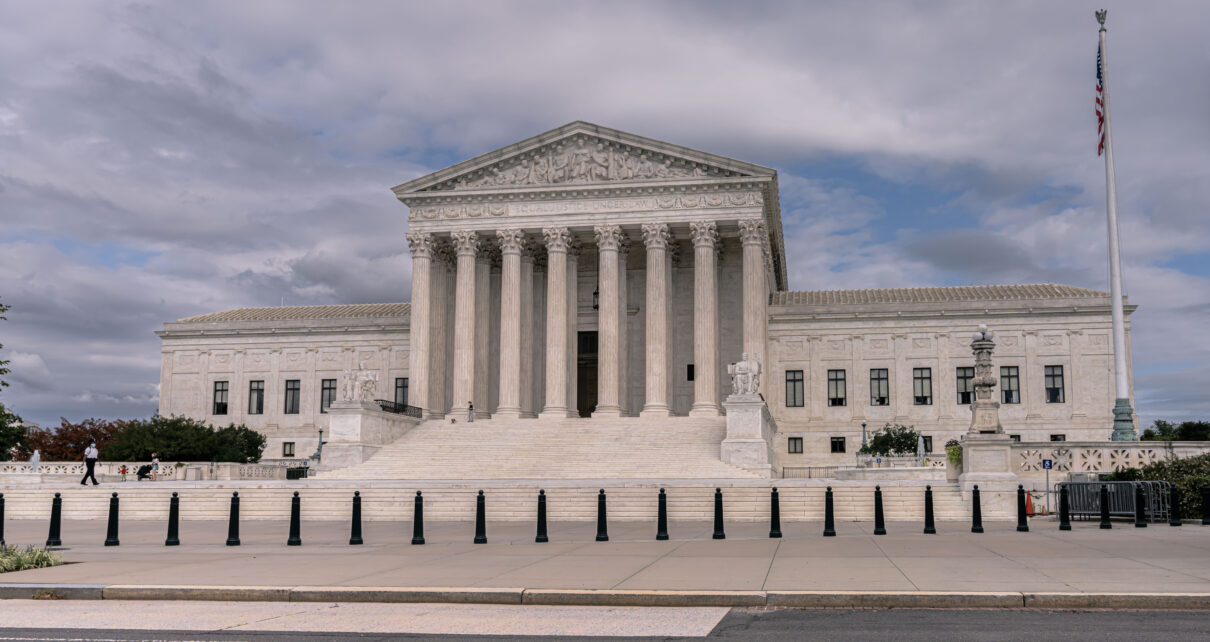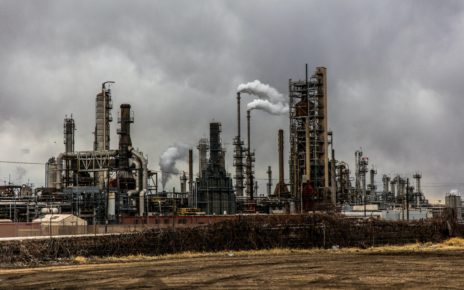This is a developing story, please check back for updates.
The U.S. Supreme Court ruled in favor of the fossil fuel industry in the case of West Virginia v. EPA. The 6-3 decision will harm the Environmental Protection Agency’s (EPA) ability to protect the environment by enforcing limits on carbon dioxide emissions from power plants using Section 111D of the Clean Air Act.
The narrow majority opinion mandates that section 111D of the Clean Air Act does not give the EPA constitutional authority to tell power plants how much carbon dioxide they can release; instead, the court delegated that authority to Congress. The majority opinion by Chief Justice Roberts, however, does not completely eliminate the EPA’s ability to enforce environmental protections aimed at greenhouse gases.
The ruling has immediately drawn strong rebuke from leading environmental organizations. Earth Justice Senior Vice President Sambhav Sankar issued this statement: “The decision will have far-reaching implications and will compromise the ability of federal agencies to use science-based information to combat climate change and protect public health. But this decision still leaves room for the EPA to act on its duty to take on carbon pollution from power plants, and the agency must act quickly and issue a new carbon emission reduction rule as soon as possible.”
The case was brought by West Virginia Attorney General Patrick Morrisey, joined by about a dozen additional Republican Attorney Generals and the North American Coal Corporation, and Westmoreland Mining Holdings, LLC. The fossil fuel industry and its allies began legal proceedings for what eventually became West Virginia v. EPA in 2015 following the adoption of the Clean Power Plan (CPP) by Obama’s EPA.
The CPP was adopted around the same time as the Paris Climate Accords in an effort to bring down emissions from the U.S. power generation sector, which accounted for 32% of U.S. carbon dioxide emissions in 2021.
Under the Trump administration, EPA administrator Scott Pruitt withdrew the CPP and attempted to replace it with a different rule that was more lenient on the fossil fuel industry. The Trump rule, however, has also been revoked, and the EPA under President Biden has not issued any rule attempting to regulate the carbon emissions of power plants.
The case is unprecedented in that the plaintiffs are taking action against the EPA for EPA rules that are not on the books. The plaintiff’s goal was to stop any EPA rulemaking, such as the Clean Power Plan that utilized Section 111D from ever taking effect in the future. Essentially, rather than ruling on the constitutionality of any existing law, the court preemptively stopped the Biden EPA from implementing this particular strategy for fighting the climate crisis.
Although the ruling right now is limited, the precedent could be applied to other heavily-polluting sectors of the fossil fuel economy, such as fracking in the Permian Basin. The EPA recently began efforts to limit methane pollution in America’s largest oil and gas producing regions of West Texas and New Mexico by declaring counties to be in violation of ozone pollution limits under Section 107 of the Clean Air Act.
As the EPA’s move in Texas has already prompted a response from Texas Gov. Greg Abbott who blamed the EPA and Biden for high gas prices, the EPA’s moves in Texas and around the country are likely to face additional court challenges. The narrowness of the West Virginia v. EPA decision does not stop it from being used as precedent to shift the ability to protect the environment from the EPA to Congress.
For concerned citizens and organizations fighting to enact effective climate policy in the United States, there are still many options as pointed out by Drilled Podcast host Amy Westervelt in her piece, “Even in the Worst-Case Scenario with West Virginia v EPA, We Still Have Pathways to Climate Action.” Westervelt points out that in addition to various sections of the Clean Air Act, there are still many ways to reign in U.S. emissions such as using the EPA authority to protect Americans against particulate matter, using the Toxic Substances Control Act, federal legislation, executive orders, the Defense Production Act as well as structural changes in the government system, such as packing the courts, reforming the filibuster or revolution.
Upon the release of the ruling, youth climate action organization Zero Hour urged that it is not time to give up hope on the fight, and instead called on President Biden to take the climate crisis more seriously. “We’re fighting to take down the fossil fuel industry and take back our rights to clean air and a liveable planet. This fight is not over. President Biden retains the authority to take much needed climate action through executive powers,” said Zero Hour Executive and Policy Director Zanagee Artis.



